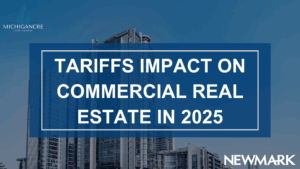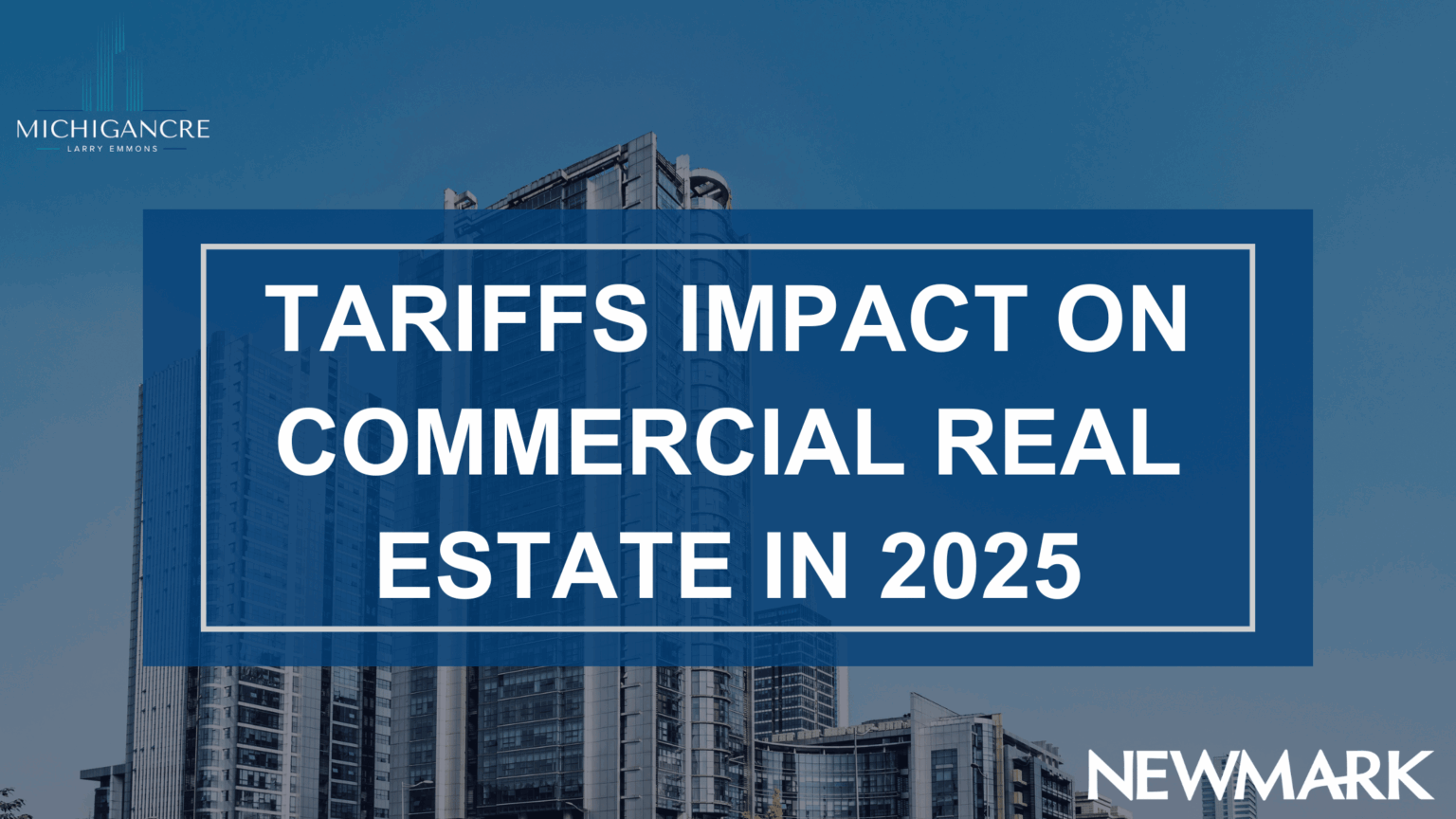The tariffs impact on commercial real estate is becoming increasingly significant in 2025 as U.S. import duties surge to 14.5%—the highest level since 1938. For commercial property owners and investors, this economic shift signals major implications for development costs, tenant operations, and supply chain reliability.

What Led to the 2025 Tariff Spike?
In 2024, the average U.S. tariff was a modest 2.5%. As of April 2025, however, the average has jumped to 14.5%, with some specific tariffs skyrocketing up to 125% according to Yahoo!Finance.com. This drastic increase is expected to generate more than $206 billion in federal revenue and reduce imports by approximately 30%—a move seen by many as a form of economic reshaping rather than mere protectionism.
How Tariffs Affect Commercial Real Estate Development
Developers in the commercial real estate sector rely heavily on imported materials such as steel, glass, and electronics. With higher tariffs:
- Construction Costs Rise: Projects become more expensive, possibly delaying timelines or even causing cancellations.
- Inflation Pressures Tenants: Businesses renting commercial spaces face costlier operations due to pricier imported goods.
- Increased Financing Needs: Developers may need larger budgets or new funding sources to absorb these new costs.
These shifts are already influencing decision-making in commercial development, especially in industrial and logistics sectors.
Tariffs and Supply Chain Reconfigurations
Tariffs impact the flow of goods and affect location decisions for warehouses and distribution centers. As imports become more expensive and scarce, we can expect:
- Onshoring Trends: Businesses may seek domestic alternatives, increasing demand for local production facilities.
- Shift in Tenant Mix: CRE owners might experience shifts in tenant industries—favoring U.S.-based manufacturing or logistics.
- Site Selection Strategy Changes: Proximity to U.S. ports and transportation infrastructure could become more valuable.
Navigating This Economic Shock
This increase in tariffs is more than a temporary policy—it’s a planned economic shock with long-term implications. Historically low tariffs have enabled globalization and supply chain optimization. Now, real estate professionals must pivot:
- Lease Terms May Evolve: Adjustments for inflation or material shortages could be written into new lease agreements.
- More Demand for Flex Spaces: Companies may prefer flexible, adaptive-use commercial space during uncertain times.
- Investor Caution: Some investors may delay new acquisitions until trade policies stabilize.
Why It’s Important to Work with a CRE Broker
With all the changes caused by the tariffs impact on commercial real estate, it’s more important than ever to have a trusted commercial real estate broker by your side.
Here’s why:
- Stay Ahead of Price Changes: A CRE broker keeps track of rising costs for building materials and can help you plan better so you’re not caught off guard.
- Find Smart Investment Deals: Brokers know which areas are growing and can help you find properties that are likely to go up in value, even during tough times.
- Get Better Lease Agreements: They can help you get fair terms when renting or leasing space—especially if costs or supplies change quickly.
- Protect Your Investment: With so many changes happening, a CRE broker helps you make smart choices to avoid risks and grow your real estate portfolio the right way.
Conclusion: Strategize Now for the New CRE Landscape
The tariffs impact on commercial real estate will continue to ripple through the industry, reshaping development, leasing, and investment. As we face this policy-driven shift, staying informed and flexible will be key.
Working with a CRE expert like Larry Emmons means you don’t have to figure it all out alone. They’ll help you make the best moves for your business in today’s uncertain economy.
Connect with Larry Emmons today to help you navigate the changing landscape of commercial real estate with expert insights and tailored strategies.
